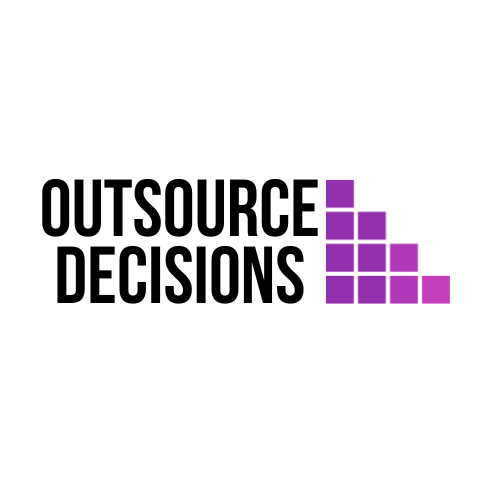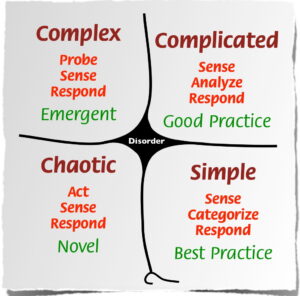As someone who’s navigated the twists and turns of entrepreneurship, writing, and digital marketing, I’ve faced my fair share of career decisions.
In this post, we’ll dive deep into the art and science of career decision-making, exploring strategies that can help you chart a course to professional fulfillment and success.
Career decision making is more than just choosing a job—it’s about crafting a path that aligns with your values, skills, and long-term aspirations. It’s a process that combines self-reflection, research, and strategic planning.
Key to this understanding is recognizing that career decisions aren’t one-time events. They’re ongoing choices that shape your professional journey. Think of it as navigating a river rather than choosing a fixed destination. You’ll encounter rapids, calm waters, and forks along the way, each requiring thoughtful decision-making.
Assessing Your Skills and Passions
Before you can make informed career decisions, you need to know yourself. This means taking a hard look at your skills, passions, and values. What are you good at? What do you love doing? What matters most to you in a career?
I remember when I first started my blog. I knew I loved writing, but I also discovered a passion for analytics and strategy. This self-awareness helped me carve out a niche in content marketing that combined all these elements.
Try this exercise: List your top five skills and your top five passions. Where do they intersect? This overlap can be a goldmine for potential career paths.
Researching Career Options
Once you have a sense of your skills and passions, it’s time to explore the possibilities. The job market is constantly evolving, with new roles emerging as technology and industries change.
Did you know that according to the World Economic Forum’s “Future of Jobs Report 2020,” 85 million jobs may be displaced by 2025, while 97 million new roles may emerge?
Don’t limit yourself to job titles you already know. Use resources like O*NET OnLine or LinkedIn’s job search to discover roles you might not have considered. Pay attention to industry trends and emerging fields that align with your interests.
Setting SMART Career Goals
Having a clear direction is crucial in career decision making. That’s where SMART goals come in. SMART stands for Specific, Measurable, Achievable, Relevant, and Time-bound. Instead of saying “I want a better job,” a SMART goal might be “I want to transition into a data analyst role in the healthcare industry within the next 18 months.”
Breaking down your big career goals into smaller, actionable steps makes the decision-making process less overwhelming. It also gives you clear metrics to track your progress.
Overcoming Decision Paralysis
Sometimes, having too many options can be paralyzing. Analysis paralysis is real, especially when it comes to big career decisions. I’ve been there, endlessly weighing pros and cons without making a move.
The key is to remember that perfect decisions don’t exist. Every choice has trade-offs. Instead of aiming for the “perfect” decision, aim for a “good enough” decision that you can refine as you go. Take small steps, gather feedback, and adjust your course as needed.
The Role of Mentors and Networks
No one succeeds in a vacuum. Throughout my career, mentors and a strong professional network have been invaluable in helping me make crucial decisions. They’ve provided insights, opened doors, and offered perspective when I needed it most.
Seek out mentors in your field of interest. Join professional associations, attend industry events, and engage in online communities. These connections can provide real-world insights that no amount of online research can match.
Balancing Risk and Reward
Every career decision involves some level of risk. The key is to assess the potential rewards against the risks. When I left my stable corporate job to start my own business, it was a calculated risk. I had savings, a solid plan, and a fallback option.
Create a risk assessment matrix for your career options. List potential risks and rewards for each path. This visual aid can help you make more balanced decisions.
Adapting to Changing Industries
In today’s rapidly evolving job market, adaptability is key. According to the U.S. Bureau of Labor Statistics, the average person changes jobs 12 times during their career. This means being prepared for change and continuously updating your skills.
Stay informed about industry trends. Follow thought leaders on social media, subscribe to industry publications, and attend conferences when possible. Being proactive about change can turn potential disruptions into opportunities.
The Power of Continuous Learning
Learning doesn’t stop when you leave school. In fact, continuous learning is more important than ever in today’s fast-paced work environment. Every new skill you acquire opens up new career possibilities.
Embrace a growth mindset. Set aside time each week for learning, whether it’s through online courses, books, podcasts, or hands-on projects. Platforms like Coursera, edX, and LinkedIn Learning offer a wealth of courses on various subjects.
Work-Life Integration in Career Choices
Gone are the days when work and personal life were separate entities. Today, we’re increasingly seeking careers that integrate well with our personal lives and values. This might mean prioritizing flexible work arrangements, pursuing a career that aligns with your personal interests, or choosing a path that allows for travel or volunteer work.
Consider how different career options align with your ideal lifestyle. Remember, success isn’t just about climbing the corporate ladder—it’s about creating a life you love.
Financial Considerations in Career Decisions
While passion is important, practical considerations like salary, benefits, and long-term financial stability also play a crucial role in career decisions. It’s about finding the right balance between fulfillment and financial security.
Here’s a table comparing different aspects of financial considerations in career decisions:
| Aspect | Short-Term Focus | Long-Term Focus |
|---|---|---|
| Salary | Immediate high pay | Growth potential |
| Benefits | Current health insurance, vacation time | Retirement plans, stock options |
| Job Security | Stable current position | Industry growth trends |
| Skill Development | Skills for current role | Transferable, future-proof skills |
| Location | Current cost of living | Potential for relocation, remote work |
Consider both short-term needs and long-term financial goals when making career decisions. A high-paying job might be tempting, but a lower-paying role with more growth potential could be more beneficial in the long run.
Career transitions can be both exciting and daunting. Whether you’re changing industries, moving from employee to entrepreneur, or returning to the workforce after a break, transitions require careful planning and execution.
When I transitioned from a traditional marketing role to digital marketing, I started by identifying transferable skills, filling knowledge gaps through online courses, and building a portfolio of digital projects. This gradual approach made the transition smoother and less risky.
Building a Personal Brand for Career Success
In today’s digital age, your personal brand can significantly impact your career opportunities. It’s not just about what you know, but also about how you present yourself to the world.
Start by defining your unique value proposition. What makes you stand out? Then, consistently showcase this through your LinkedIn profile, personal website, and professional interactions. Share your knowledge through blog posts, social media, or speaking engagements to establish yourself as a thought leader in your field.
The Impact of Technology on Career Paths
Technology is reshaping the job market at an unprecedented pace. Artificial Intelligence, automation, and digital transformation are creating new roles while making others obsolete. According to a McKinsey Global Institute report, by 2030, 375 million workers (14% of the global workforce) may need to switch occupational categories due to digitization, automation, and advances in AI.
Stay ahead of the curve by keeping an eye on emerging technologies in your field. Consider how you can leverage these technologies to enhance your career prospects rather than being displaced by them.
Embracing Failure as a Career Tool
Fear of failure often holds us back from making bold career moves. But here’s a secret: failure is an incredible teacher. Some of my biggest career successes came on the heels of failures that taught me valuable lessons.
Reframe how you view failure. Instead of seeing it as a setback, view it as feedback and a stepping stone to success. Each failure brings you closer to finding what works, both in your career decisions and your professional skills.
TL;DR
Career decision making is a complex process that involves self-assessment, research, goal-setting, and continuous learning.
It requires balancing passion with practicality, embracing change, and leveraging your network. Remember to consider work-life integration, build your personal brand, and stay adaptable in the face of technological changes. Most importantly, don’t let fear of failure hold you back—every decision, whether it leads to success or failure, is an opportunity for growth.
Q&A
Q1: How often should I reassess my career path?
A1: While there’s no one-size-fits-all answer, it’s generally good to do a career check-in at least once a year. However, be open to reassessing more frequently if you experience significant changes in your industry, personal life, or career satisfaction.
Q2: Is it too late to change careers in my 40s or 50s?
A2: It’s never too late to change careers. Many successful career changes happen later in life when people have a wealth of experience to draw from. The key is to leverage your existing skills and experiences while being open to learning new ones.
Q3: How important is salary in career decision making?
A3: While salary is important, it shouldn’t be the only factor. Consider the entire compensation package, including benefits, work-life balance, growth opportunities, and job satisfaction. Sometimes a lower-paying job with better growth potential or work-life balance can be more valuable in the long run.
Q4: Should I prioritize job security or career growth?
A4: This depends on your personal circumstances and risk tolerance. Ideally, look for opportunities that offer both security and growth. However, in today’s rapidly changing job market, developing adaptable, in-demand skills often provides more long-term security than any single “stable” job.
Q5: How do I know if I’m making the right career decision?
A5: There’s rarely a “perfect” decision. The right decision is one that aligns with your values, skills, and long-term goals. It should excite you more than it scares you. Remember, you can always adjust your course as you gain more information and experience.
Career Decision-Making Quiz:
Answer these questions to assess your career decision-making readiness:
- Have you identified your top 5 skills and passions?
Yes / No - Do you have a clear understanding of the current job market in your field of interest?
Yes / No - Have you set SMART career goals for the next 1-3 years?
Yes / No - Do you have at least one mentor or trusted advisor for career guidance?
Yes / No - Are you actively learning new skills relevant to your desired career path?
Yes / No - Have you created or updated your personal brand (LinkedIn, portfolio, etc.) in the last 6 months?
Yes / No - Do you have a financial plan that aligns with your career goals?
Yes / No
Scoring:
6-7 Yes: Excellent! You’re well-prepared for career decision making. Keep up the great work and continue to refine your approach.
4-5 Yes: Good start! You’re on the right track. Focus on the areas where you answered “No” to strengthen your career decision-making process.
2-3 Yes: There’s room for improvement. Consider dedicating more time to career planning and self-assessment. The resources mentioned in this post can help you get started.
0-1 Yes: It’s time to prioritize your career planning. Start by working on self-assessment and goal-setting. Don’t hesitate to seek guidance from a career counselor or mentor.
Remember, career decision making is an ongoing process. Regularly reassess your goals, skills, and the job market to ensure you’re on the right path. With thoughtful planning and a willingness to adapt, you can navigate your career journey with confidence and purpose.





